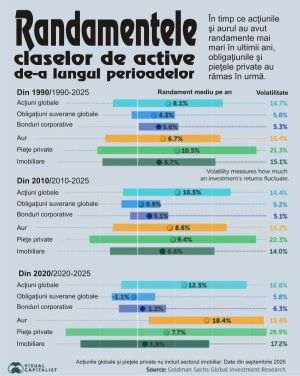• IMF WARNING: Issues in Europe could extend to banks in the emerging economies
• The warning of the IMF comes one day after BURSA alerted its readers (see yesterdays" edition!)
The sovereign debt crisis in Europe has increased the risk exposure by 300 billion Euros, and they will need recapitalization, perhaps through the European Financial Stability Facility, to allow them to bear any potential losses, according to the IMF.
The report of the IMF concerning the world"s financial stability published yesterday estimates the increase in the risks borne by banks over the last two years, due to the sovereign debt crisis. The report does not include an assessment of the banks" capital requirements, which would have to be determined through complete stress tests, that would identify the assets on their balance sheets, the revenues and losses.
In the beginning of this month, the head of the IMF, Christine Lagarde, was criticized by European officials, after calling for the recapitalization of European banks. There was information which said that the IMF has found a deficit of 200 billion Euros for banks, but European officials insisted that the amount was inflated, and banks in the region had a strong capitalization.
The report published yesterday states that the amount of 200 billion Euros is not a strict measurement of capital deficits. In turn, the IMF has evaluated the exposure to risk, once the price of sovereign bonds fell.
Out of the total of 300 billion Euros, 200 billion Euros come from the sovereign debt of some countries, namely 60 billion Euros from the debt of Greece, 20 billion Euros from Ireland and Portugal. An additional 120 billion Euros represent the exposure to the sovereign debt of Belgium, Spain and Italy. According to the Fund, the remaining 100 billion Euros of the exposure is tied to the recent drop of the price of bank assets and to the increase in the bank"s financing costs.
The report of the IMF also warns that banks would have to raise capital from private investors, even though viable banks may need public funding as well. Lagarde said that Europe may need to use the European Financial Stability Facility to support some banks.
The IMF warned that the problems of Europe could spread to the emerging economies. For the first time, the Fund estimated that the balance sheets of emerging market banks could fall 6% if the global growth slowed down drastically due to problems in Europe, forcing an outflow of capital.
The most vulnerable would be the banks of Latin America, whereas those of Asia and Eastern Europe are more sensitive to the increase in funding costs.
• Frederic Oudea: French banks will meet the new Basel III capital requirements
French banks will meet the new Basel III capital requirements, Frederic Oudea, the CEO of Societe Generale, said yesterday in an interview issued to French publication "Le Figaro". "French banks have bolstered their capital by 50 billion Euros, (68.6 billion dollars) over the past two years, and will meet the requirements of Basel III", the head of SocGen said. His comments support the statements of the Governor of the Central Bank of France, Christian Noyer, who downplayed the effects of Moody"s decision to downgrade French banks.
The president of BNP Paribas, Michel Pebereau, also assured on Tuesday that the bank does not need any kind of financial aid. The president of the largest French bank stressed that BNP Paribas and other French lenders do not need additional capital, even if their shares took a hit over the last weeks due to worries over their financial solidity and access to lending.
•
• An influential Chinese economist advises Beijing not to buy European sovereign bonds
China should refrain from buying European government bonds and should cut dollar holdings in its foreign exchange reserves, Yu Yongding, a former adviser to China's central bank, and influential Chinese economist said on Wednesday. ""We should not buy European bonds and there should be conditions for us to buy," he said, without providing details on the conditions mentioned.
About a quarter of China"s foreign currency reserves of 3,200 billion dollars, the largest in the world, are denominated in Euros.
Yu also said that Beijing should reduce the weight of assets denominated in dollars in its currency reserves, because the dollar will weaken over the long term. He added that the dollar may weaken in the short term, due to its safe haven status in times of volatility.
Yu repeated his calls for China to cut dollar holdings, arguing that it's unwise for the country to accumulate foreign exchange reserves and invest in U.S. Treasuries to get lower returns compared to that enjoyed by foreign investors in China.
Yu argued that it's unwise for the country to accumulate foreign exchange reserves and invest in U.S. Treasuries to get lower returns compared to that enjoyed by foreign investors in China.
Analysts estimate that China has diversified its currency reserves lately, but at least 70% of them are still denominated in dollars.










































